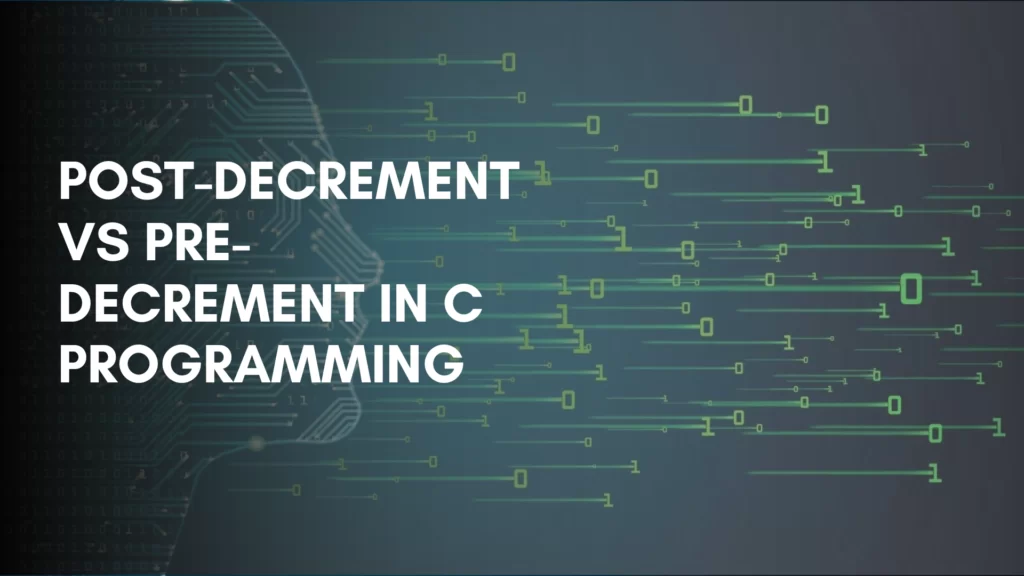Communication is one of the most important skills to have during a coding interview, as it allows you to explain your thought process and demonstrate your technical knowledge.
When preparing for a coding interview, most candidates focus on technical skills such as algorithms and coding languages. While technical skills are essential, they are not the only things that matter. Communication skills are equally important during a coding interview, and can often make the difference between getting hired or rejected.
In this article, we’ll explore the importance of communication skills during a coding interview and provide tips on how to improve them.

Table of Contents
ToggleWhy are communication skills so important during a coding interview?
- Conveying Ideas Clearly: During a coding interview, you’ll be expected to explain your thought process and solution to the interviewer. If you can’t communicate your ideas effectively, the interviewer may not be able to understand your approach or solution. This can lead to misunderstandings, confusion, and ultimately, rejection.
- Collaborating with Others: In many coding interviews, you may be asked to work with other candidates or the interviewer to solve a problem. Effective communication is crucial in these situations, as it allows you to share ideas, work together, and come up with a solution that meets everyone’s needs.
- Demonstrating Confidence: Good communication skills can help you come across as confident and professional, which is essential during a coding interview. If you struggle to communicate your ideas clearly or appear nervous or unsure, the interviewer may doubt your ability to perform well.
- Understanding the Problem: Communication skills are not just about speaking, but also about listening. During a coding interview, the interviewer may provide information or ask questions that require you to listen carefully and respond appropriately. If you can’t understand the problem or the interviewer’s instructions, you may struggle to provide an effective solution.
Read also:- What is DATA SCIENCE? Top 8 Best Programming Languages for DATA SCIENCE
How to improve your communication skills during a coding interview?
1. Practice your communication skills
One of the best techniques to improve your communication skills is to practice regularly. You can start by communicating with friends or family members who are not familiar with coding.
Attempt to explain technical concepts in simple terms that they can comprehend. Doing this will help you develop your ability to convey complex ideas in a way that non-technical people can understand.
It’s not enough to communicate just to be understood; you should also aim to persuade, inspire, and motivate.
To do this effectively, you should practice active listening and seek to understand the needs and interests of your audience.
This approach will enable you to tailor your communication style to your listener’s needs, making it more likely that they will engage with you and your ideas.
2. Prepare for the interview
Preparing for the interview is also critical to improving your communication skills. It can be a daunting task, but it is an essential step to improving your communication skills.
It is not just about dressing well and showing up on time, but it is also about demonstrating your interest and commitment to the job.
One of the essential things to do before an interview is to research the company you are interviewing with. Knowing the company’s culture, values, and specific job requirements can help you tailor your communication style to fit their needs.
It will also help you to ask more targeted questions and show that you have done your homework. You can start your research by visiting the company’s website, reading its mission statement, and finding out about its products or services.
You can also look up news articles or industry reports about the company to get a better understanding of its position in the market.
Once you have gathered this information, you can use it to prepare for the interview. For instance, you can craft your responses to fit the company’s values and culture.
You can also use this knowledge to highlight your skills and experiences that match the job requirements. By doing this, you will be able to communicate effectively with the interviewer and demonstrate your suitability for the role.
Preparing for an interview also involves practicing your communication skills. You can do this by rehearsing your responses to common interview questions, such as “Tell me about yourself,” or “What are your strengths and weaknesses?” Active listening, which entails paying attention to the interviewer and responding appropriately, can also be practiced.
3. Listen actively
Active listening is an important skill that is crucial in effective communication.
In an interview setting, it is particularly important to listen carefully to the interviewer’s questions to ensure you respond appropriately.
By actively listening, you demonstrate to the interviewer that you are engaged and interested in the conversation, which can make a positive impression on them.
One key aspect of active listening is ensuring that you fully understand the question being asked. It can be tempting to jump straight into answering a question, especially if you feel confident in your response.
However, taking the time to clarify the question can help you to provide a more thoughtful and relevant answer. Do not be afraid to ask the interviewer for clarification if you are unsure of the question. This shows that you are paying attention and are committed to providing a quality response.
Another important aspect of active listening is avoiding distractions. During an interview, it is important to focus solely on the conversation at hand.
Avoid checking your phone or other electronic devices, as this can be interpreted as a lack of interest or respect for the interviewer’s time.
By giving your full attention to the conversation, you demonstrate that you are taking the interview seriously and are invested in the opportunity.
4. Be concise and clear
When it comes to communicating technical concepts, it’s crucial to be able to convey complex ideas in a clear, concise manner. It can be tempting to rely on technical jargon or industry-specific terminology, but this approach can often backfire if your audience doesn’t have the same level of expertise or understanding as you do.
To ensure effective communication, it’s important to use simple language and focus on the most critical points.
Begin by identifying the key concepts or ideas you want to convey and then distill them down into plain, straightforward language that anyone can understand.
In addition to simplifying your language, you can also use visual aids such as diagrams or charts to help illustrate complex concepts.
This can be especially useful when dealing with technical concepts that are difficult to explain using words alone.
It’s also important to be mindful of your audience’s level of knowledge and understanding.
If you’re communicating with someone who is less familiar with the topic at hand, you may need to spend more time explaining foundational concepts or providing background information.
At the same time, it’s important not to oversimplify or talk down to your audience. It’s possible to use clear, simple language while still conveying the complexity and nuance of technical concepts.
Read also:- Best coding interview preparation strategies for beginners [2023]
5. Be confident
Confidence plays a vital role in effective communication. When you speak confidently, you convey a sense of trust and authority.
Your body language, tone, and choice of words all contribute to the perception of confidence. When you are confident, you come across as knowledgeable and in control, which can help you build a positive rapport with the interviewer.
Speaking clearly is another critical aspect of effective communication. Clear communication means choosing the right words, using proper grammar and sentence structure, and enunciating your words correctly.
It’s essential to avoid filler words, such as “um,” “uh,” and “like,” as they can make you come across as uncertain or unprepared.
Asking questions and seeking clarification are also crucial during an interview. If you don’t understand a question, ask the interviewer to clarify it.
This not only shows that you are engaged and interested, but it also helps ensure that you are providing the information the interviewer is looking for.
It’s important to remember that the interviewer is not trying to trick you. Instead, they are trying to get to know you, your thought process, and your communication skills.
Being confident and clear in your communication will help them get a better understanding of who you are and what you can bring to the table.
Conclusion
In conclusion, effective communication skills are critical to the success of any coding job. During a coding interview, you need to demonstrate that you can communicate your ideas, understand the requirements of the project, and work with other team members to achieve the desired outcome. By practicing your communication skills, preparing for the interview, active listening, being concise and clear, and being confident, you can improve your communication skills and increase your chances of landing your dream coding job.
Read also:- Best 10 Effective Tips for increasing coding productivity
How can I improve my confidence during a coding interview?
Practice, preparation, and positive self-talk can all help improve your confidence during a coding interview. Remember that the interviewer wants you to succeed and focus on your strengths and accomplishments.
What if I struggle with English as a second language?
If English is not your first language, consider practicing with a tutor or language exchange partner to improve your communication skills. Additionally, it’s okay to ask the interviewer to repeat or rephrase a question if you’re having trouble understanding it.








